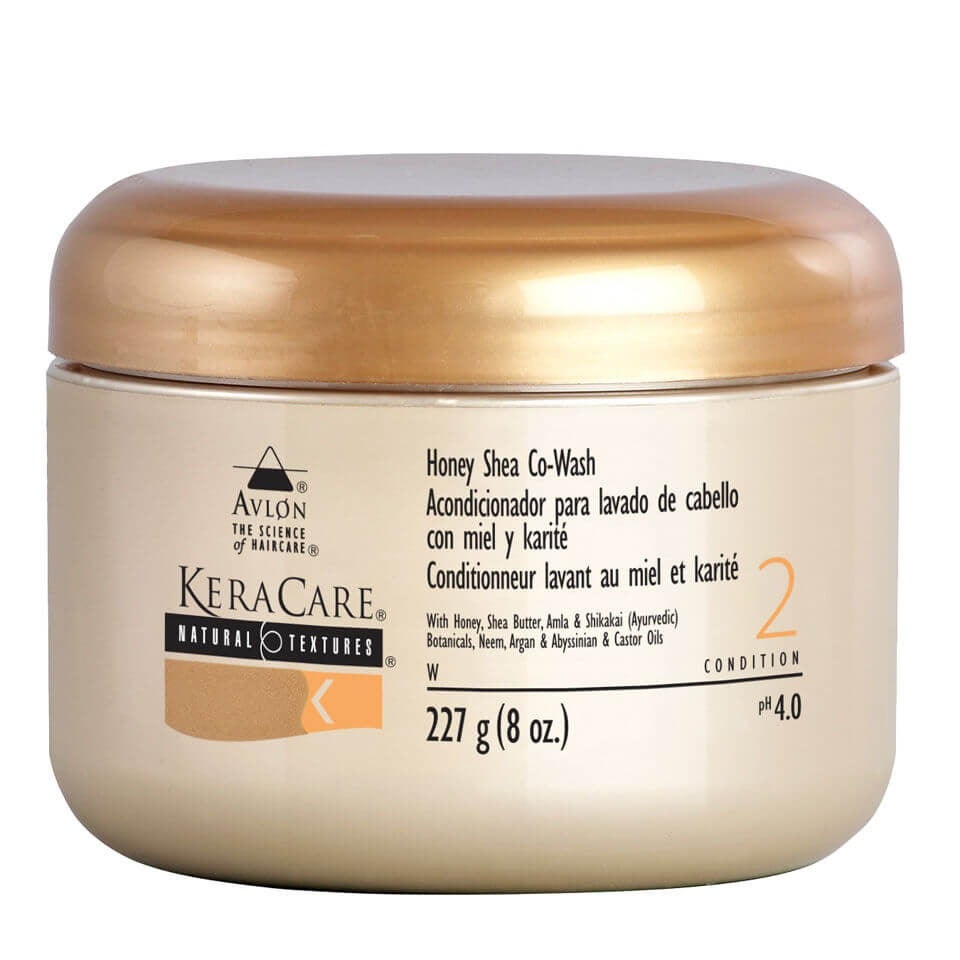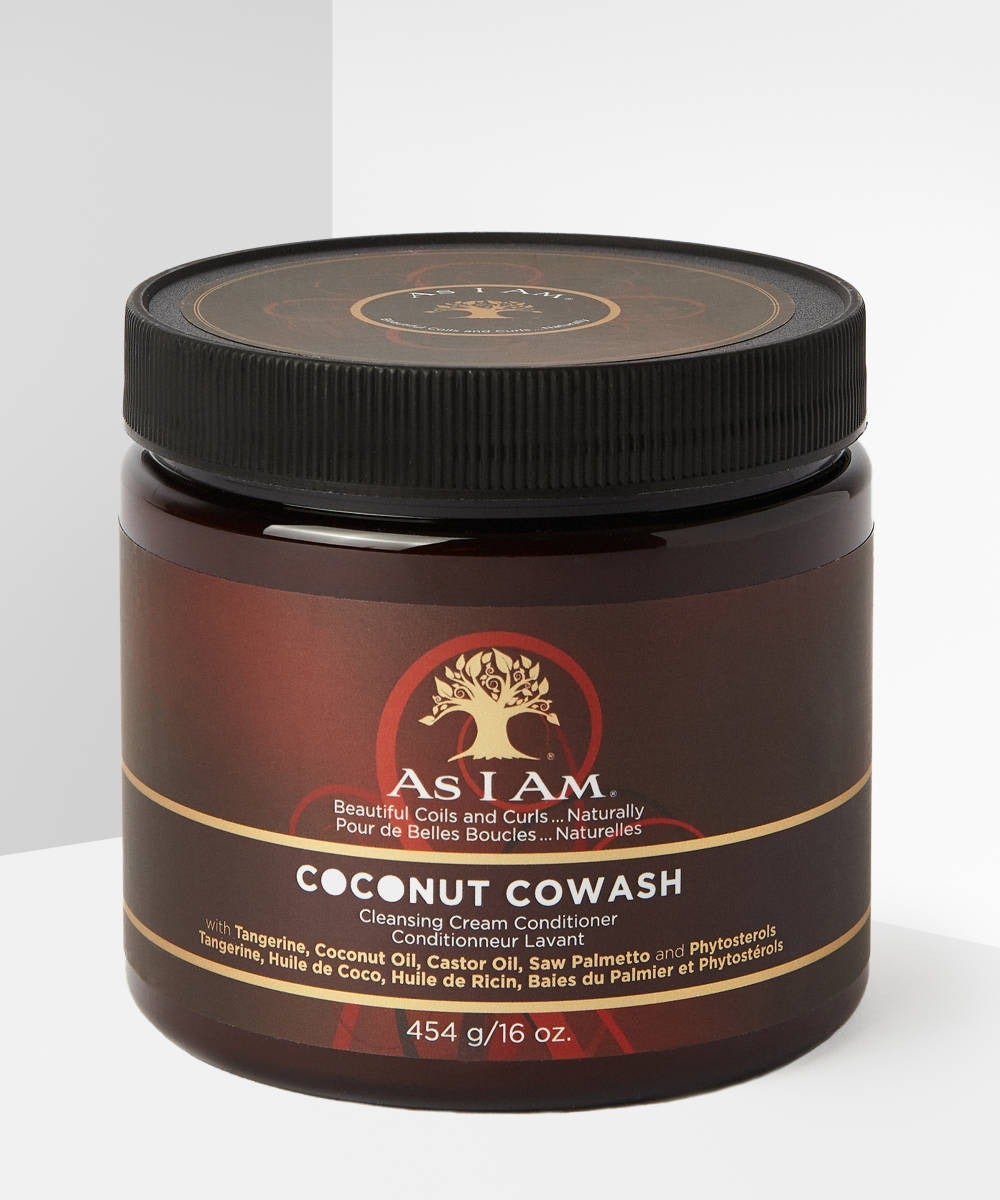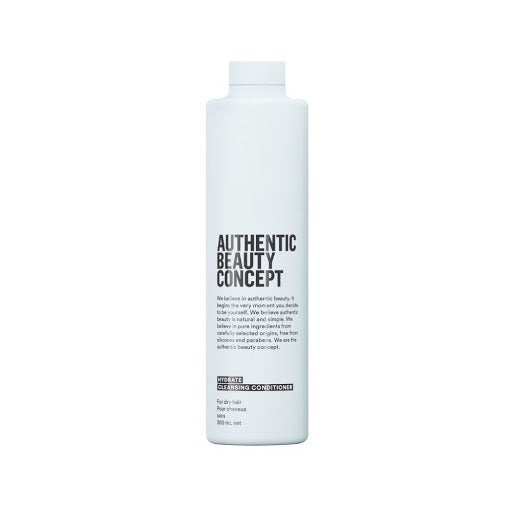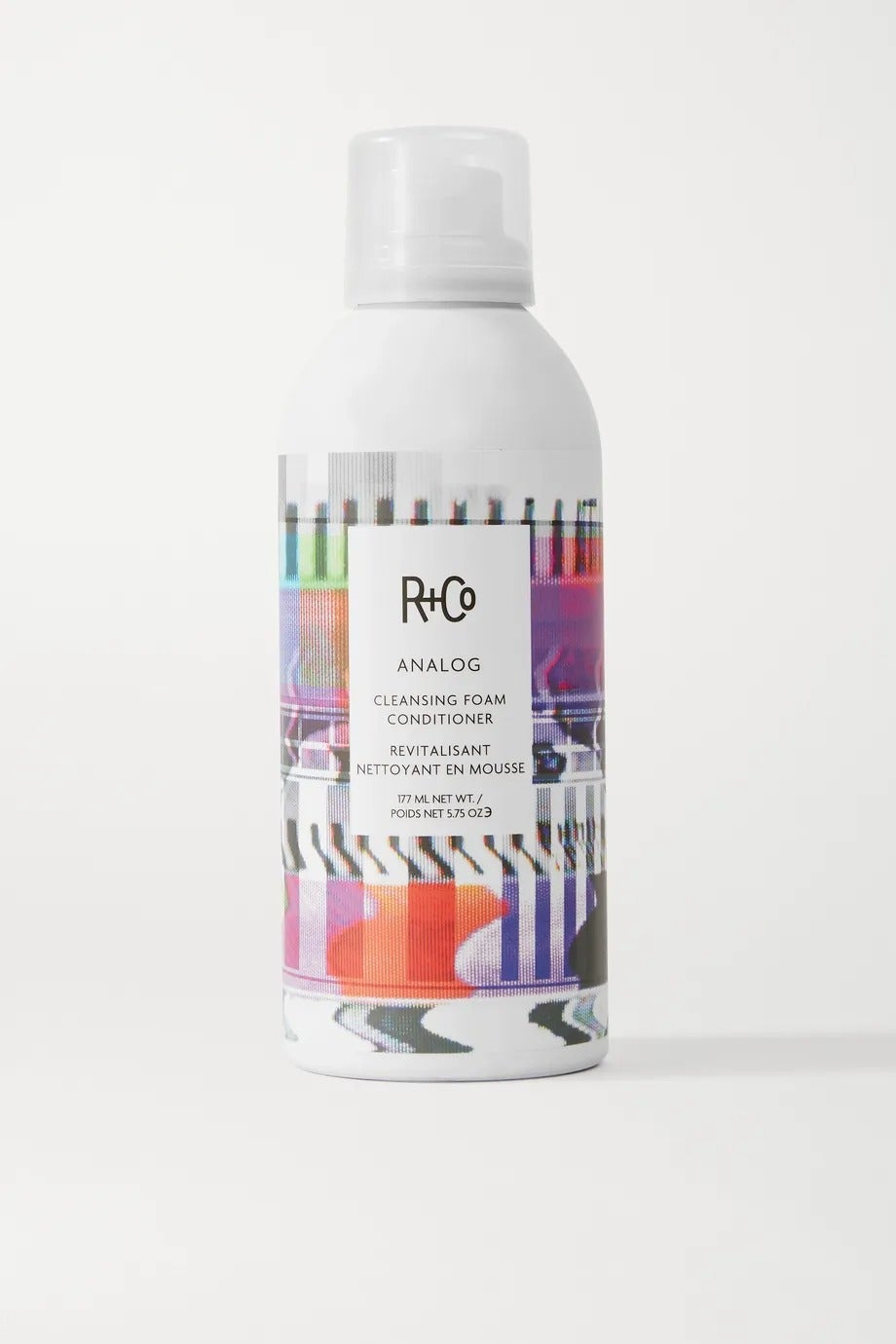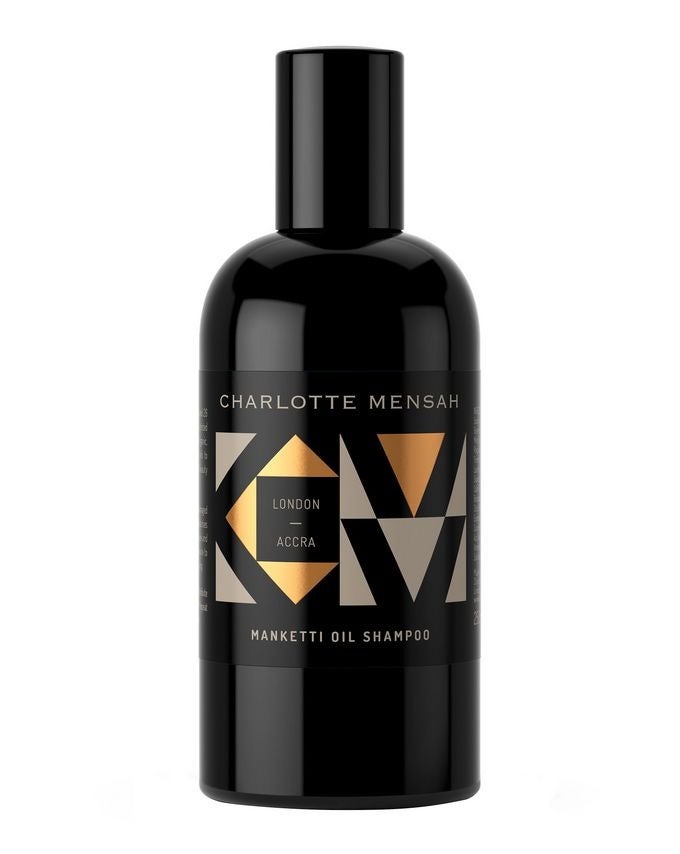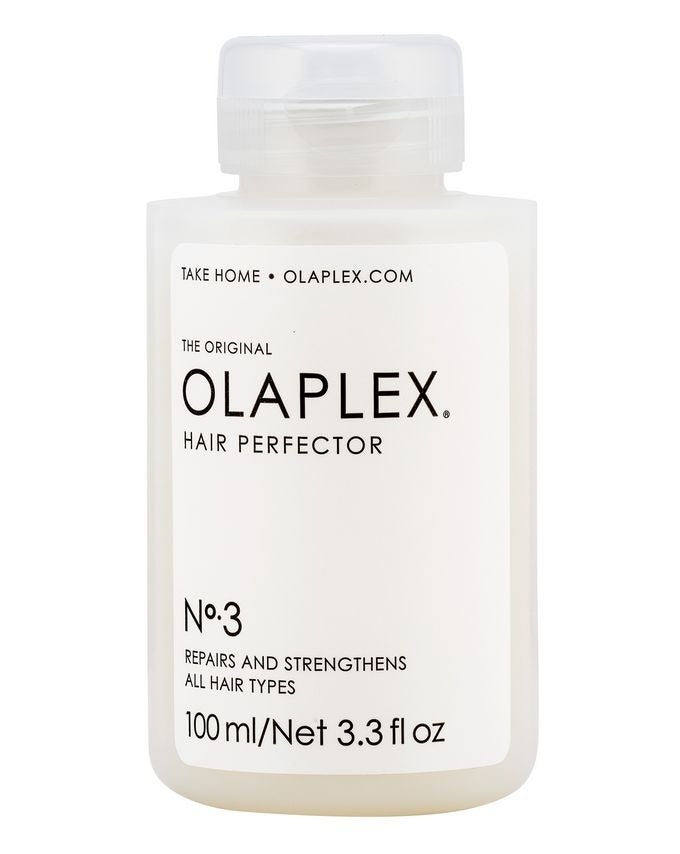This Common Hair Mistake Is Holding You Back From Your Best Curls
Photographed by Caroline Tompkins
If we were to sum up the world of natural haircare ranges and recommended routines, one phrase would spring to mind: it's complicated. From the shelf-loads of products we try to the raved about methods and curl vernacular (plopping, anyone?), there is a lot to get to grips with in the curly community. But if you strip back the techniques and the various products, there's one practice which is universally loved for curly and coily hair.
Enter: co-washing.
Currently, the co-washing hype on TikTok is huge as users document their shock at discovering their hair is curly for the first time. This method of cleansing for curls is by no means new; it has long been recommended for textured hair, which can often lack moisture. Old school shampoos can be laden with sulphates, which create the lather we associate with cleansing. While they aren't all bad, harsh sulphates have been shown to further pull moisture from strands – a no-no for a hair type that craves hydration. That's where co-washing comes in.
AdvertisementADVERTISEMENT
What is co-washing for hair?
To put it simply, co-washing involves using a conditioner to cleanse your curls instead of a shampoo, which otherwise lathers up. At first, people used regular conditioner but as the hype grew around the method, brands caught on and standalone 'co-washes' hit the hair market. "Co-washing came about because there wasn't much of a selection of cleansers on the market that were sulphate-free," says Matt Surplice, owner of Spring, a salon which specialises in curly hair. "The idea is that it was better to wash your curls with a silicone-free conditioner than it would be to use a sulphate-laden shampoo."
Dehydrated curls often result in frizz and a lack of definition when styling, which has seen the curl community pretty much denounce using foaming shampoos, especially if you want to achieve your best definition and hair health. Instead, they promote the Curly Girl Method, which recommends using a clarifying foaming shampoo only at the start of your curl journey to 'reset' your hair and to remove any lingering product build-up.
What are the benefits of co-washing hair?
After co-washing your curls and coils, your hair is likely to feel soft and look defined. Working day in, day out with curly hair, Matt is an advocate for co-washing as he sees the benefits that opting out of foaming shampoos can have on maintaining moisturised, juicy curls. "Co-washing can be beneficial as it helps keep curly hair hydrated, even during the cleaning stage," he says. "Using conditioner to cleanse also gives an initial hit of hydration before you've even started the conditioning process."
AdvertisementADVERTISEMENT
The newer co-washes are essentially souped up conditioners which have some cleansing benefits, too. They gently get rid of oil and dirt but don't strip hair of those essential natural oils, or rinse the hair of moisture. That said, co-washing isn't always enough to actually cleanse your curls and coils.
Is co-washing bad for your hair?
Even as a co-washing fan, Matt admits that if you're using styling or haircare products which sit on your strands and scalp (such as non-penetrating oils and products that include silicones), you'll need a stronger cleanser to remove them, and the health of your hair depends on it.
“
Women tell me that because their hair is textured, they don't shampoo it – they just use a conditioner or co-wash it. But this leaves the scalp clogged up and hair can become heavy and appear dull with no shine at all.
Charlotte Mensah
”
"The theory is by using water-soluble and softer styling products, all you should need is a conditioner and the motion of scrubbing your scalp should be enough. But it certainly isn't always the case," says Matt. "Oil-based products will need something to break them down."
Award-winning hairdresser Charlotte Mensah doesn't recommend co-washing as the best cleansing option for her clients. "So many women tell me that because their hair is textured, they don't shampoo it – they just use a conditioner or co-wash it. But do not do this," insists Charlotte. "It leaves the scalp clogged up and hair can become heavy and appear dull with no shine at all."
Of course, this may not be the experience for everyone who solely co-washes their hair. The key to knowing whether co-washing works for you is to nail the products you are using between washes. Using moisture-rich haircare and styling products but avoiding hair oils, butters and silicones will mean that you'll only need something gentle to refresh your hair. But if you're using ingredient-heavy styling gels, creams and oils, even if they are silicone-free, they can build up on your curls and coils and are hard to remove without a deeper cleanse. Co-washing doesn't really offer that.
AdvertisementADVERTISEMENT
There is good news, though. Thanks to product innovation, Matt says that there are now soft, sulphate-free cleansers on the market that won't strip your hair of its natural oils or leave it feeling dry. He recommends the Authentic Beauty Concept Cleansing Conditioner, £27, which is a no-lather cleanser that will gently lift dirt and light product build-up. "If you're opting for a co-wash, I think it's a better option than using solely a conditioner, which is formulated to hydrate and not necessarily to cleanse," says Matt. Alternatively, the R+CO Analog Cleansing Foam Conditioner, £25, is a great in-between option. A co-wash with shampoo elements, the consistency is like a shaving foam: super light and aerated. It cleans effectively but doesn't strip hair of moisture.
R29 also rates the As I Am Naturally Coconut Co-Wash, £11.99, and KeraCare Honey Shea Co-Wash, £8.80. Here's more on the team's co-washing hair routines.
What is the best hair routine for curly and coily hair types?
Losing moisture on wash day is a worry for those with curly and coily hair. Charlotte advises starting with a pre-treatment. "This stops the hair from tangling so much when it's shampooed, so there is less frizz later," Charlotte says. You can opt for an overnight hair mask or a quick treatment before you start to cleanse, such as the Olaplex No.3 Hair Perfector, £26, which locks in moisture. Then when you cleanse, Charlotte recommends using small, gentle movements so you don't disturb the curl pattern. "This also minimises tangles and frizz," says Charlotte.
AdvertisementADVERTISEMENT
Whether you choose to continue co-washing or want to make a switch to a foaming shampoo, the perfect wash-day routine is exclusive to you and your unique head of curls or coils. Ultimately, deciding how you cleanse your hair should be based on tried-and-tested results. After all, no one knows your hair better than you do.
Refinery29's selection is purely editorial and independently chosen – we only feature items we love! As part of our business model we do work with affiliates; if you directly purchase something from a link on this article, we may earn a small amount of commission. Transparency is important to us at Refinery29, if you have any questions please reach out to us.
AdvertisementADVERTISEMENT







